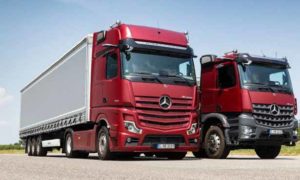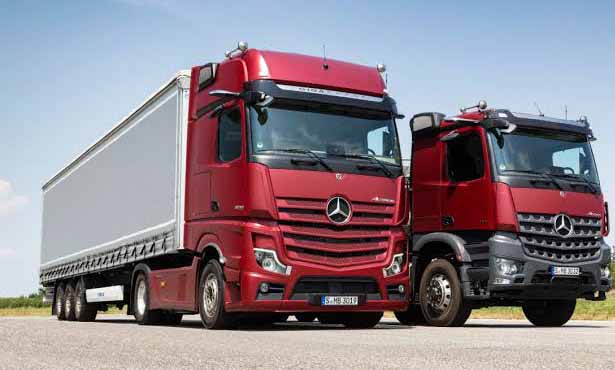News
EU truck makers agree to end production of all diesel-powered vehicles by 2040

Actros Benz is one of the most popular brands
In an unprecedented science-backed statement, Europe’s truck manufacturers concluded last week that by 2040 all new trucks sold need to be fossil free in order to reach carbon-neutrality by 2050.
It will be possible to meet this target provided the right charging/refuelling infrastructure is built and a coherent policy framework is put into place, including comprehensive CO2 pricing to drive the transition, according a statement from the Potsdam Institute for Climate Impact Research (PIK).
To develop their roadmap to carbon-neutrality by 2050 at the latest, the CEOs of Europe’s commercial vehicle manufacturers, under the umbrella of the European Automobile Manufacturers’ Association (ACEA), have joined forces with leading scientists from the Potsdam Institute for Climate Impact Research (PIK).
“Climate change is the most fundamental challenge of our generation. At the same time, the raging COVID-19 pandemic has put the spotlight on the crucial role that road transport and logistics play to ensure that food, medicines and other essential goods are available to those who need them,” stated Henrik Henriksson, Chair of ACEA’s Commercial Vehicle Board and CEO of Scania.
“If road freight transport is to maintain its role in serving society, we need to move away from fossil fuels as quickly as possible.
Not only are we convinced that it is necessary, we know it is possible and we are ready to make it happen. But we cannot do it alone; we need policymakers and other stakeholders to join forces with us.”
A joint declaration by ACEA and PIK, published today, outlines the roadmap and conditions for transforming the road freight transport system.
Alongside investments by the commercial vehicle industry, this includes policy options such as road charges based on CO2 emissions, and an energy taxation system based on carbon and energy content.
A dense network of charging and refuelling infrastructure suitable for trucks is also crucial for the operation of low- and zero-emission heavy-duty vehicles.
According to ACEA and PIK, a sound CO2 emissions pricing system could be one of the most effective instruments, as zero-emission vehicles simply will not take off as long as diesel remains cheaper.
“Science shows us that if we want to avoid crossing dangerous tipping points in the Earth system, we need to act today – combining all available solutions to make a rapid shift to carbon-neutrality,” says Earth system scientist, Johan Rockström of PIK.
“Zero-emission vehicles will not only bring down CO2 emissions, they will also further improve air quality levels – a factor of crucial significance for human health.”
Rockström: “A first step has been taken with the ACEA/PIK cooperation, as industry and science start to work together in a strategic partnership to accelerate the transition, on the basis of scientific information.”
The decision by truck makers and scientists represents a fundamental meeting of minds between Research and Industry.
Because Europe an important global truck supplier, the decision is likely to positively impact adoption of climate friendly policies by other countries such as Uganda.
Comments























